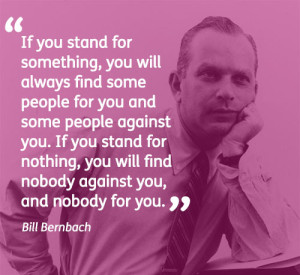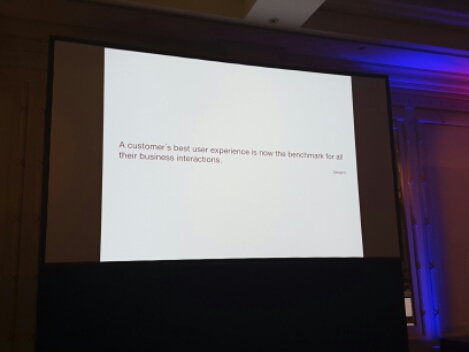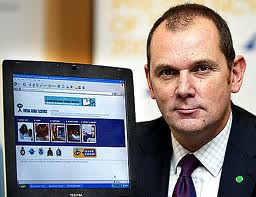
Reading one of Nick Cave’s excellent Red Hand Files reminded me of the Bill Bernbach quote that I shared on LinkedIn back in 2016.
Fast forward four years and – right now – being bold feels like a dangerous activity. Cave himself hits the nail on the head with this quote:
“…what songwriter could have predicted thirty years ago that the future would lose its sense of humour, its sense of playfulness, its sense of context, nuance and irony, and fall into the hands of a perpetually pissed off coterie of pearl-clutchers? How were we to know?”
Barely a day goes by without an example of public bear-baiting on social media – despite calls for restraint in the wake of Caroline Flack’s death.
The way people orchestrate something akin to a digital lynching when someone expresses an opinion that doesn’t appear to conform to the mean is reprehensible.
However, I have also seen remarkably reasonable debates on both Twitter and Facebook between people who completely disagree on an issue – one about Quentin Tarantino’s alleged misogyny manifesting itself in Once Upon A Time In Hollywood sticks in the mind.
But the world is built on people swapping stories and ideas, which more often that not come with a difference of opinion.
We are human. We think. We don’t all have the same opinions. We should be comfortable that sometimes people don’t agree with us.
What we must guard against is how (and possibly where) we choose to discuss and evaluate those ideas.
By and large, I have found myself unwilling to voice an opinion online. And if a straw poll among friends is anything to go by, I know I’m far from alone.
Meanwhile in the comfort of a group I know, I’m willing to put something potentially contentious out there, safe in the knowledge that I won’t become Public Enemy No.1.
I’ll leave the last word to Nick Cave again…
“I would rather be remembered for writing something that was discomforting or offensive, than to be forgotten for writing something bloodless and bland.”






Spot on! One reason I left Facebook, even though I had only a relatively small number of ‘firends’, who were actually people I knew…even there I felt I couldn’t share any opinion that could be seen as contentious or I’d get savaged!
An interesting aside – the ‘pearl-clutchers’ bit in Nick Caves’ quote is something I’ve seen a few times among Americans commentors, and in the same kind of context. I’m wondering where this idea comes from that only rich (probably white and middle aged) ladies are the ones being vociferously and viciously offended? Very odd!
Of course NOW I notice my misspelling…